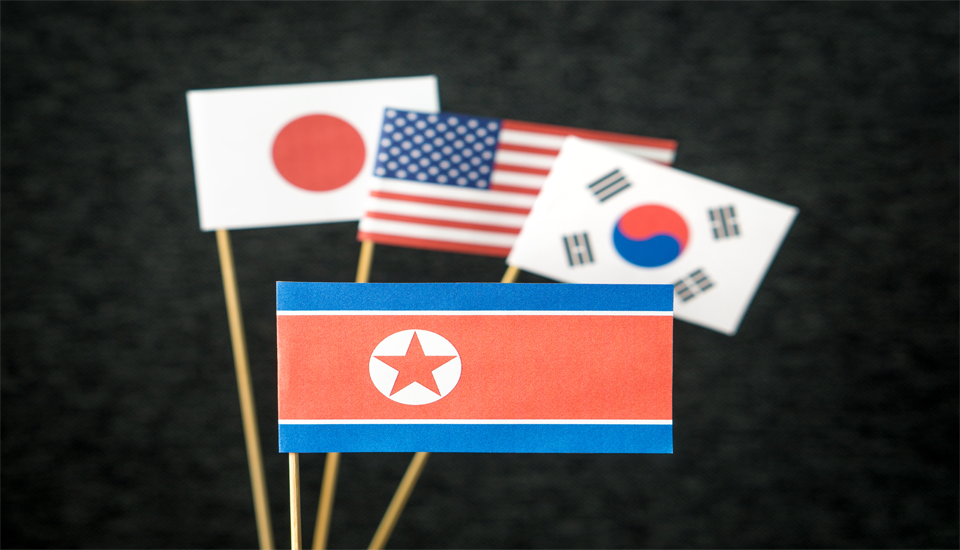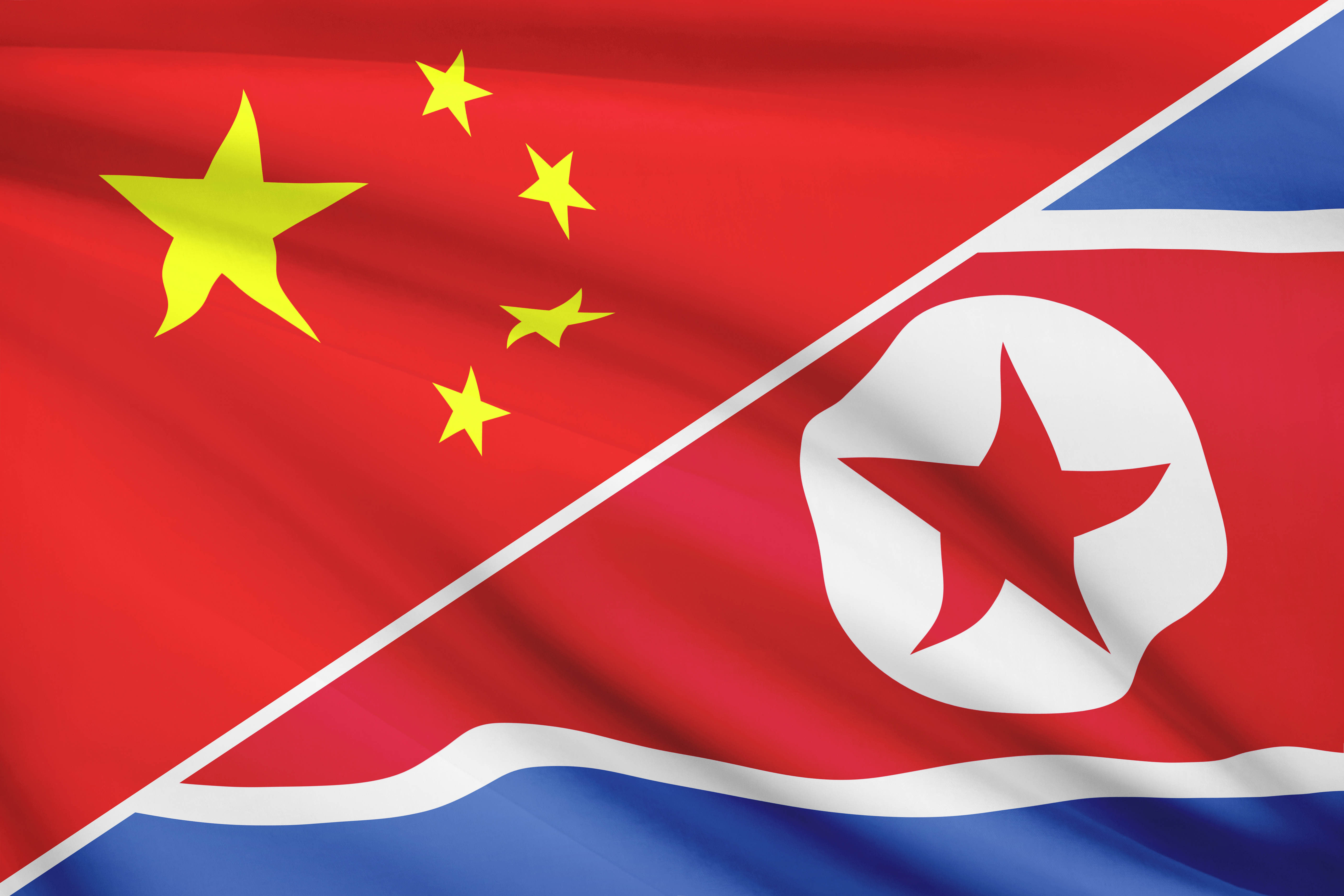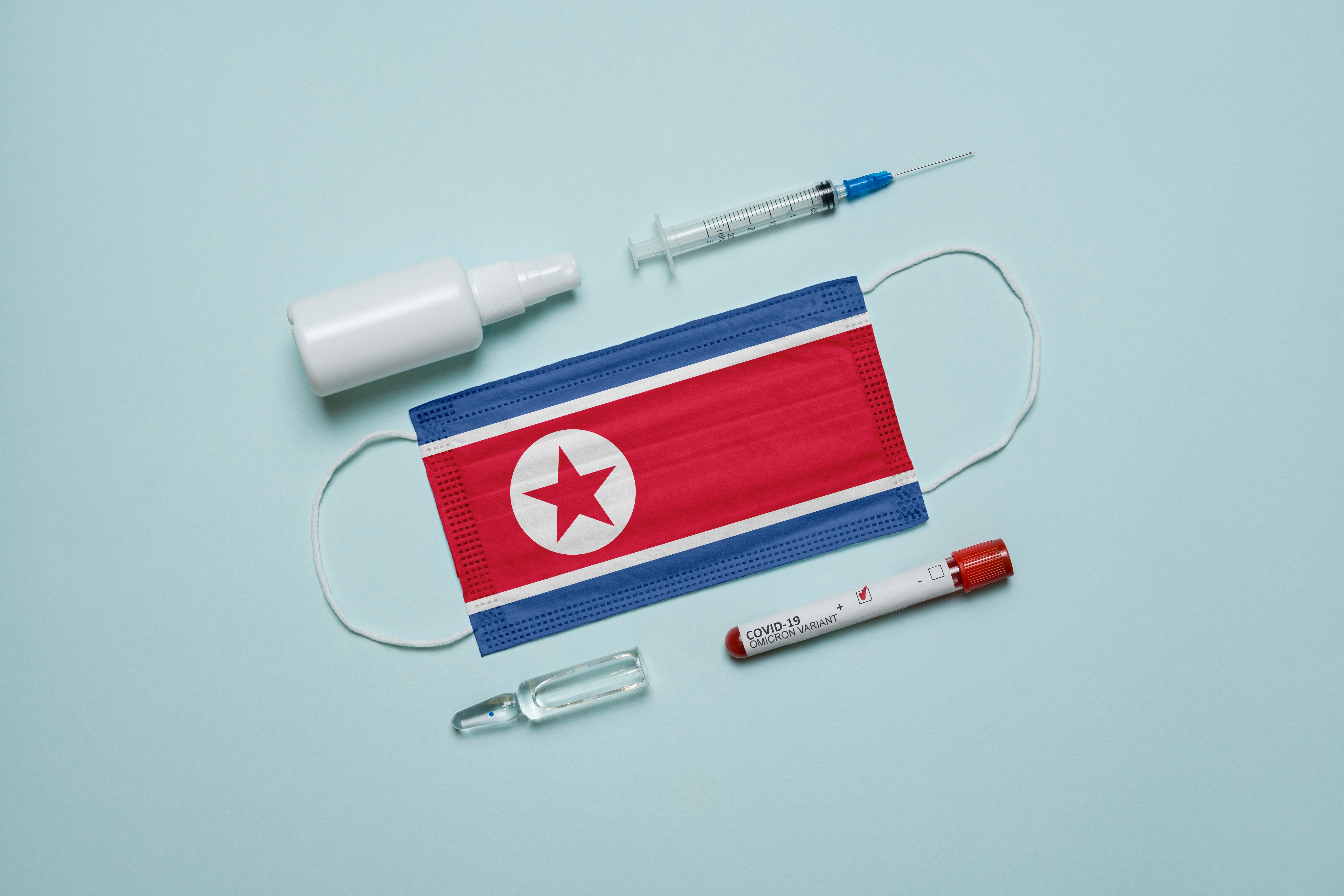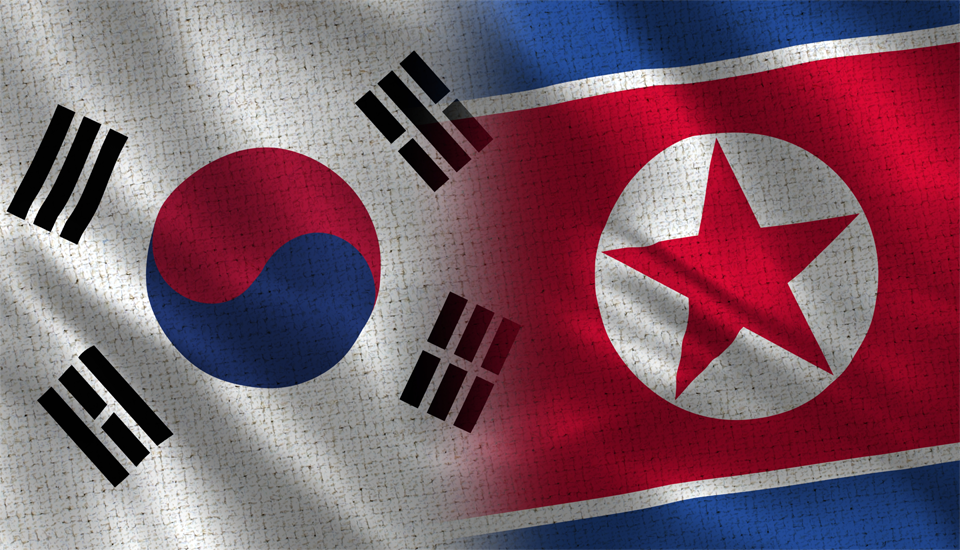
NK Update for May 2022
Special Report | June 20, 2022
Minah Kang
Ph.D. Candidate at Johns Hopkins University
In this month’s NK Update, Minah Kang, Ph.D. Candidate Johns Hopkins University, discusses North Korea’s ballistic missile tests, new activity detected at the Kaesong Industrial Complex, the rapid spread of COVID-19 in North Korea, and Pyongyang’s provocations following President Biden’s visit to South Korea and Japan. Additionally, the author looks into South Korea, Japan, and the U.S.’ response against the North, particularly at the prospects of strengthened trilateral cooperation and a stricter sanctions regime.
On May 4th, Pyongyang launched an intercontinental ballistic missile (ICBM) from the Sunan area located in Pyongyang toward the East Sea. This missile launch is the first military provocation after Kim Jong-un’s speech at the Military Parade in celebration of the 90th Founding anniversary of the Korean People’s Army on April 25th, during which he stated that “our nukes can never be confined to the single mission of war deterrent … If any forces try to violate the fundamental interests of our state, our nuclear forces will have to decisively accomplish its unexpected second mission.”
Following the launch, Cha Duck Chul, an acting spokesperson of the Ministry of Unification of South Korea, criticized North Korea’s ballistic missile test as a “clear violation of the United Nations (UN) Security Council resolutions and is contrary to the international community’s demands for peace and stability.” Additionally, Yoon Suk-yeol drew the line against North Korea at the inauguration ceremony on May 10th, stating the values of liberal democracy, human rights, and denuclearization of North Korea. On the other hand, China and Russia defended their position against the UN’s condemnation of Pyongyang’s missile test. Chinese ambassador Zhang Jun stated that the U.S. should drop false belief in the “magical powers of sanctions.”
Meanwhile, South Korea’s Unification Ministry reported that the Yoon administration recently saw vehicle movements in the Kaesong Industrial District, which were operated without permission on May 9th, just one day ahead of Yoon’s inauguration. As vehicle movements may be associated with North Korea’s unauthorized operation of Kaesong facilities, the international community needs to monitor the situation first. Seoul also added that “all issues related to the Kaesong Industrial District should be resolved through inter-Korean consultation.”
On the other hand, Pyongyang declared an “epidemic prevention crisis state” and admitted to a COVID-19 outbreak within the nation for the first time on May 12th. On the Political Bureau of the Central Committee of the Workers’ Party of Korea, the regime decided that the state epidemic prevention work would be replaced with the maximum emergency epidemic prevention system with nationwide isolation stations. They also released statistics on the spread of COVID-19 and the treatment results of the state emergency epidemic prevention headquarters on a daily basis: as of May 31st since late April, the total number of fevered persons is over 3,738,810; as of May 23rd, the death toll stands at 68, and the fatality rate is at 0.002%. However, Chairman Kim has repeatedly rejected millions of AstraZeneca and Sinovac vaccines offered by the WHO-led COVAX program. A report by the Heritage Foundation analyzed that Kim’s repeated rejection of COVID-19 assistance may have doomed his populace to needless suffering and death.
From May 20th to 22nd, President Biden visited South Korea, seeking to revitalize the U.S.-ROK alliance. Biden and Yoon issued a ROK-U.S. Leaders’ Joint Statement, strengthening their mutual commitment to defend South Korea in extended deterrence. Additionally, they shared concerns over the human rights situation of vulnerable North Koreans and the COVID-19 outbreak North Korea. Especially, Yoon set out South Korea’s pivotal role towards fulfilling the vision of a free and open Indo-Pacific.
On May 25th, immediately following President Biden’s departure from Korea and Japan, North Korea fired three ballistic missiles, including an ICBM. South Korea, the U.S., and Japan agreed to step up and impose heavier sanctions on North Korea. Against North Korea’s ballistic missile launches, the three countries released a Joint Statement by Anthony J. Blinken, Hayashi Yoshimasa, and Park Jin, emphasizing the trilateral security cooperation and noting the beginning of joint U.S.-ROK and U.S.-Japan exercises. However, a new UN Council resolution on North Korea presented on May 27th was rejected with a 13-2 vote in favor of the resolution. Russia and China, permanent members of the UN Security Council, vetoed it. The Ministry of Foreign Affairs of South Korea expressed regret over the rejection and proposed the necessity of returning to the path of denuclearization. Bruce Klinger, researcher at the Asian Studies Center of the Heritage Foundation, argued that Washington should move against North Korea and the enablers of North Korean misbehavior—China and Russia.
Unlike the Moon administration, which took a reserved stance towards the U.S.’ Quad framework, the Yoon administration has openly embraced the prospects of an Asian NATO for a “free and open Indo-Pacific.” Moreover, President Yoon’s terminological use of the “denuclearization of North Korea” in place of “denuclearization of the Korean Peninsula” in his North Korean initiative is reflective of the administration’s will to specify the range of denuclearization to North Korea’s territory. Considering those apparent signals of the Yoon administration, South Korea, the U.S., and Japan are likely to make proactive efforts to enhance deterrence capabilities against North Korea’s nuclear provocations. The three countries might embark on open and regular joint military drills, which would trigger North Korea’s boycotts of all dialogues and aggressive military reactions such as missile tests. As North Korea and the trilateral alliance between South Korea, the U.S., and Japan are to respectively adopt tough stances, tensions on the Korean peninsula are expected to rise.
■ Minah Kang is a Ph.D. candidate in the Department of Political Science at Johns Hopkins University. Her research interests include International Influences on Domestic Politics, State-Society Relations, Political Exclusion, Identity and Otherness, Global History of Cold War and East Asia, and Korean War. She has obtained her B.A. Political Science and International Relations & Women’s studies and M.A. in Political Science and International Relations at Ewha Womans University.
■ Typeset by Seung Yeon Lee, Research Associate
For inquiries: 02 2277 1683 (ext. 205) |slee@eai.or.kr
Security and External Relations

Prospects for DPRK-China Relations in 2022 and Challenges for the Yoon Administration
Bong Sup Shin | June 08, 2022

North Korea’s COVID-19 Crisis and South Korea’s Response
Philo Kim | May 31, 2022

Policy Recommendations for the Yoon Administration’s North Korea Policy (II)
Seong-ho Sheen | May 19, 2022
LIST